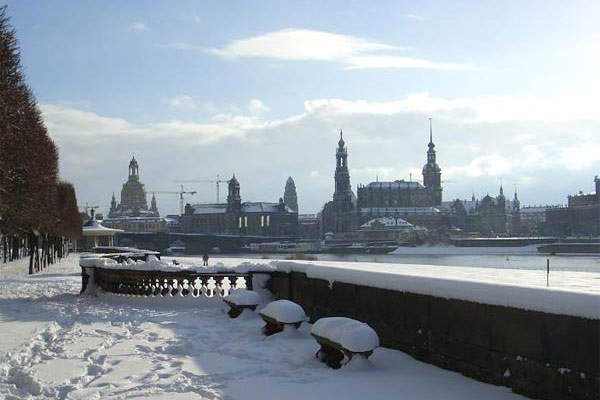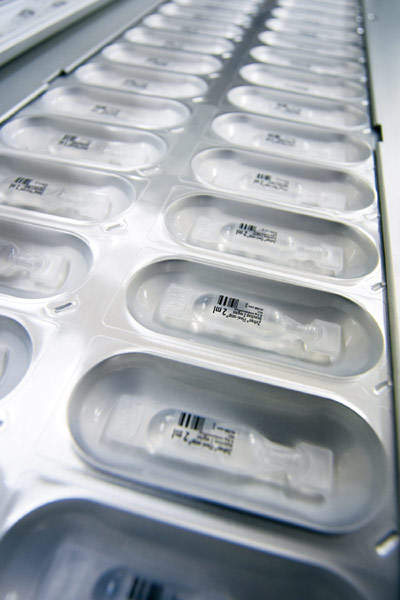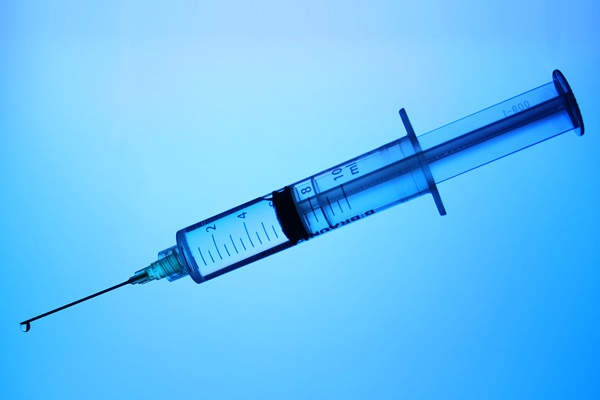The vaccine manufacturing plant of GlaxoSmithKline (GSK) in Dresden, Germany mainly produces the company’s seasonal influenza vaccine Fluarix (marketed as Influsplit SSW outside Germany), for its Biologicals division.
In the event of social emergency, the plant also manufactures the company’s pre-pandemic vaccine Prepandrix. Outside of the period of production of these influenza vaccines, the plant is used for filling and packing the liquid vaccines of GSK Biologicals, the company’s international division.
GSK continuously increased the annual vaccine production in the Dresden plant from two million to 35 million syringes until 2005, as a result of the growing demand for its flu vaccines. GSK expanded the Dresden plant capacity from 35 to 70 million by 2008.
The plant building complies with the requirements of safe collection and inactivation of waste. The company has also built a new steam boiler plant with a new chimney in the existing building.
Out of the total €125m spent on expansion, the addition of new capacities for formulation, filling and inspection facilities installed in already-existing buildings cost €25m.
Expansion of the Dresden plant
To meet the growing international demand for its influenza vaccine Fluarix, GSK planned to expand its existing vaccine manufacturing plant in Dresden. The company broke ground on the project in August 2005 and the basic design was ready for approval by February 2006. Structural components were ready by June 2006 and the plant construction was completed on 15 May 2007, after which the processing plants were inspected and tested.
The new facilities became fully operational by February 2008. The filling unit followed, to make the seasonal influenza vaccine available by September 2008, as planned for the 2008-2009 influenza season.
The expansion included the construction of two L-shaped buildings, one of which is a new production building named ‘G’ and another named ‘F’ containing laboratories, underground parking, offices and a warehouse. The buildings F and G have been built over areas of 7,700m² and 8,700m² respectively. Integrated laboratories were built in building F to assist in microbiological testing of the product attributes.
New production building
Compared to the existing production complex, the new production building G is more spacious and automated. The building has three floors for production, apart from ground floor and basement.
Sterile filtration of the ready vaccine concentrate, the first step in the production process, is carried out in the first floor. Cleaning, sterilisation and the production of buffer dilutions are also carried out on this floor. The second step in the production is bulk manufacturing, carried out in the second floor. The third floor is used for egg processing, the last step in vaccine production.
The supporting technical facilities are located in the basement and the mezzanine levels. The ground floor contains facilities including the central wardrobe, electric transformers and cleaning of trolleys. The basement has facilities for the production of pure media, hot water and compressed air. Cooling systems, wastewater processing and the sprinkler system are also located in the building’s basement.
The filling capacity has been increased by installing a second isolator. It allows the sterile vaccine filling without any contact between operator and product, thus providing an aseptic environment. The process speed and automated syringe package’s peel off of the new isolator have been optimised in comparison with the existing one. A cooling chamber was built on the ground floor.
Design and construction
GSK partnered with Linde for designing the new facilities in the expansion project. LSMW was selected as the EPCMV (engineering, procurement, construction management and validation) contractor. LSMW’s contractual scope included concept development, planning the design, approval and detailed planning, and plant construction and qualification. LSMW chose HWP Planungsgesellschaft as the project architect.
Siemens implemented a building management system for all production-related air-conditioning units and automated the air-conditioning system for the incubators. Siemens also automated the vaccine production line’s packaging units.
LSMW created the concept plan within eight weeks. It could complete the basic design, including the overall approval planning in accordance with BImSchG (Federal Immission Protection Act) within four months. Seven months were taken up to construct the temporary weatherproof building shell. The entire project within LSMW’s contractual scope was completed in 36 months.






